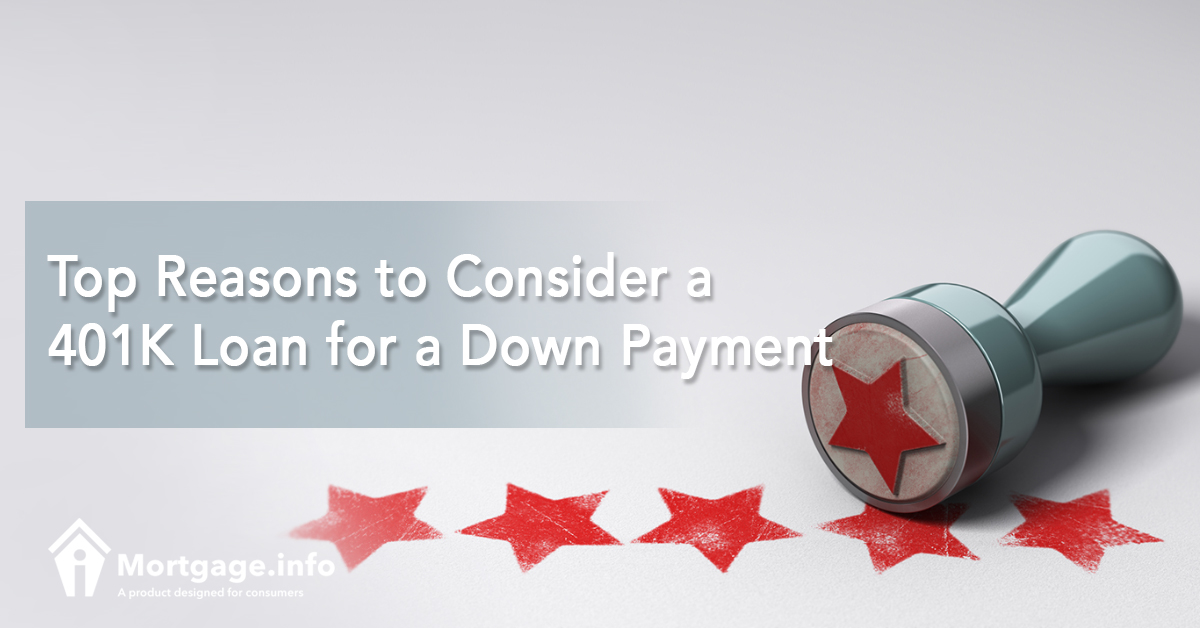Everyone always told you never to touch your retirement savings, but there are a few instances that you should consider it. Once such case is when you need money for a down payment on a home. If you do not have the standard 20 percent down payment and face the chance of paying mortgage insurance every month, it is time to consider a 401K loan.
Pay Yourself Rather than the Insurance Company
When you put less than 20 percent down on a conventional loan, you pay Private Mortgage Insurance. The exact amount you pay depends on your credit score and the loan-to-value ratio. The lower your credit score, the higher the premium. The opposite is true for the loan-to-value ratio; the higher the ratio, the higher your PMI.
When you take out a 401K loan to make the 20 percent down payment, you eliminate the need to pay Private Mortgage Insurance. Because you borrow the money from the 401K, you must pay it back. You are not withdrawing the money for good. The amount you must pay on a monthly basis will likely be more than the amount of PMI you would have had to pay, but essentially, you are paying yourself when you make the loan payments. With PMI, you pay the insurance company to guarantee your loan for the lender – there is no return on the investment for you. With the loan, you see the return on the investment because the money is yours when you hit retirement age.
Your Debt Ratio Does not Change
A large factor on any borrower’s loan application is the debt ratio. The amount of outstanding debts you have can play a vital role in whether or not you receive approval for a mortgage. If you borrow the money to make a down payment, that loan can affect your debt ratio. One loan that does not affect your debt ratio, however, is the 401K loan. The credit bureaus do not report this loan and the minimum payment does not get figured into your debt ratio. Because you essentially pay yourself back, lenders do not consider it a true loan, which means your purchasing power becomes higher when you secure your down payment funds this way.
You Lower your Interest Rate
Your mortgage interest rate varies based on the risk factors you provide. For example, an applicant that needs to borrow 95% of the purchase price to purchase a home, has a low credit score and very little reserves will likely have a higher interest rate than a borrower with a high credit score and only requires 80 percent of the purchase price for their mortgage. If you have a lower interest rate, you save money not only every month, but also over the life of the loan. If you take out a 30-year term, you could save a significant amount of money simply by having a lower interest rate.
A 401K Loan does not Affect your Credit Score
When you apply for a mortgage, most experts recommend that you do not do anything that could affect your credit score. This means that you should not take out any new loans, make any large purchases or max out your existing credit lines. If you do any of these things, your credit score could potentially drop. A 401K loan, on the other hand, does not affect your credit score at all. Because the credit bureaus do not know about your loan, it does not figure into the algorithm that computes your credit score. If you were to obtain the down payment funds in any other manner, however, chances are that they would affect your credit score in some manner.
You Can Pay the 401K loan Back without a Penalty
Some loans have prepayment penalties if you pay them off faster than the amortization allows. 401K loans do not have such a penalty. Most banks amortize the 401K loan over 5 years, as that is how they are regulated, but you can pay them off as quickly as you desire. If you have the money before the 5 years is up, you can pay the money back and save yourself some interest in the long run. You do not have to provide a source for the payoff or do anything else that a lender would make you do for a standard loan. This gives you some leeway with how you pay off your existing debts.
Most experts adamantly agree that no one should take out a 401K loan, but there are times that it is beneficial, especially when you need down payment money for a mortgage. If you do not have 20 percent to put down on a home and you know you will stay in the home for the long-term, taking out the loan on your retirement savings can help save you money in the long run. Because the interest you pay goes right back to your retirement funds, you essentially pay yourself back. If the down payment prevents you from paying Private Mortgage Insurance, you end up saving the most money in the end, making it a win-win situation.

